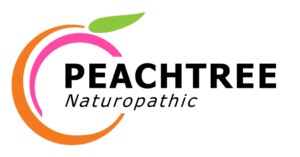
Being a competitive athlete my whole life, and also a Master Trainer with the International Sports Sciences Association, working with female athletes on a naturopathic level is an important part of my practice. So often, I hear women involved in long duration intensive training begin to complain about uncontrollable anxiety, mood swings, feeling depressed or unmotivated, irregular cycles, loss of interest in sex, skin/hair issues, sleep problems, plateaus in their training goals, and even body temperature issues, dizziness and shortness of breath. Holy Smokes!!!
These women are in top physical shape and feel they are taking great care of themselves. They tell me they eat clean proteins, have very little processed carbohydrates and sugars in their diet, they are hydrating and using electrolytes throughout the day, but still feel crazy with some of the above symptoms. They feel frustrated and often think they aren’t training hard enough, or need to diet down even more. I cringe when I hear this and immediately begin to counsel them on the endocrine system dysfunction they are experiencing.
I will caveat this post by saying that it is not only athletes that are affected by this dysfunction, but this group of women experience this at a higher and more severe rate, and because of their determined and dedicated personalities to the sport/training, they often will not take the necessary steps to recover.
The endocrine system contains a number of glands super important to your hormonal health, including the adrenal and pituitary gland, and help to maintain balance in your body.

When you are working out or training, the body releases cortisol, which is also known as the “fight or flight” hormone. It increases heart rate, dilates pupils, heats up your body temperature and actually temporarily increases inflammation in the body in the case that it needs to ward off an invader. Acutely, this response is how we survive, and also how we get through tough training sessions. But when this cortisol response becomes chronic, as in the case of overtraining syndrome, the endocrine system is eventually forced to find cortisol from other hormones in order to keep up the training “asks” of the body. Some refer to this as the Pregnenalone Steal; cortisol is taken from the hormone Pregnenalone, which is a key hormone involved in progesterone production. Two things are happening here: a cortisol resistance (depleted cortisol) is happening and the female’s progesterone levels are tanking or non-existent. Yikes!
WHY PROGESTERONE IS SO IMPORTANT FOR US WOMEN
Progesterone is a “feel good” hormone; it helps us to feel balanced, relaxed and grounded. It helps to keep estrogen-dominance at bay, which combats weight gain, PMS, headaches, bloating and fatigue just to name a few. Progesterone keeps our emotional health and moods swings in check—specifically that of anxiety. It is also an important hormone for fertility as it supports a healthy luteal phase, which is the phase that lasts between days 10-14 of your cycle after ovulation; it helps to secure implantation and proper uterine lining while also helping to prevent miscarriage.
Many women who get medical diagnosis of PCOS, fibroids, ovarian cysts and endometriosis often have low progesterone, which unfortunately does not always get addressed by their GP.
Aside from increases in cortisol production, many other issues can impact progesterone which I see quite a bit with the female athlete, and include mineral imbalances from a restricted diet and loss of minerals through sweating, poor gut health, especially when there are diets heavy in proteins and raw vegetables or a lack of variety—which lead to inflammation and lack of nutrient absorption along with uncomfortable symptoms, an overburdened liver which can happen with lack of hydration and toxins from the environment along with poor food choices and of course alcohol, and the general stress from the training and competition preparation. Many female athletes find themselves constipated or having diarrhea, bloated, exhausted and not seeing any improvements in their training, which is all affected by the glands and gut!
How do I Increase my Progesterone Levels Naturally
Along with a full evaluation of diet (with attention to fatty acids), lifestyle foundations have to be addressed, including sleep and a reduction of training. I like to test hormones, pH and digestion.
I like to get my females’ adrenal issues addressed with adaptogenic herbs, sleep and hydration strategies and a specific movement protocol. Depending on what my female clients’ labs reveal, other important minerals, vitamins and targeted supplementation will most likely be needed to address dysfunction of the endocrine system.
With my background as a Master Trainer and Specialist in Fitness Nutrition, I can also offer recovery training programs when the time comes, along with a periodized approach to begin increasing performance again over time.
There are certain herbs that specifically work to balance and revitalize female hormones, including DIM, Chaste Tree and Dong Quai and Wild Yam, which is usually in the form of a bio identical cream.
My protocol for each client is always individualized and based off assessments and data collection, and usually my female athletes, if they follow instructions regarding their training habits, begin to feel better in the first three to four weeks, but long term improvement takes more time and varies per individual.
Again, I specifically addressed female athletes in this post, but many women experience progesterone issues for reasons outside of over training.
If you think you would like to look into your hormonal health, please feel free to set up a free consultation and we can get you started! Just click on the Work with Me Page and we will get you feeling like you again!


